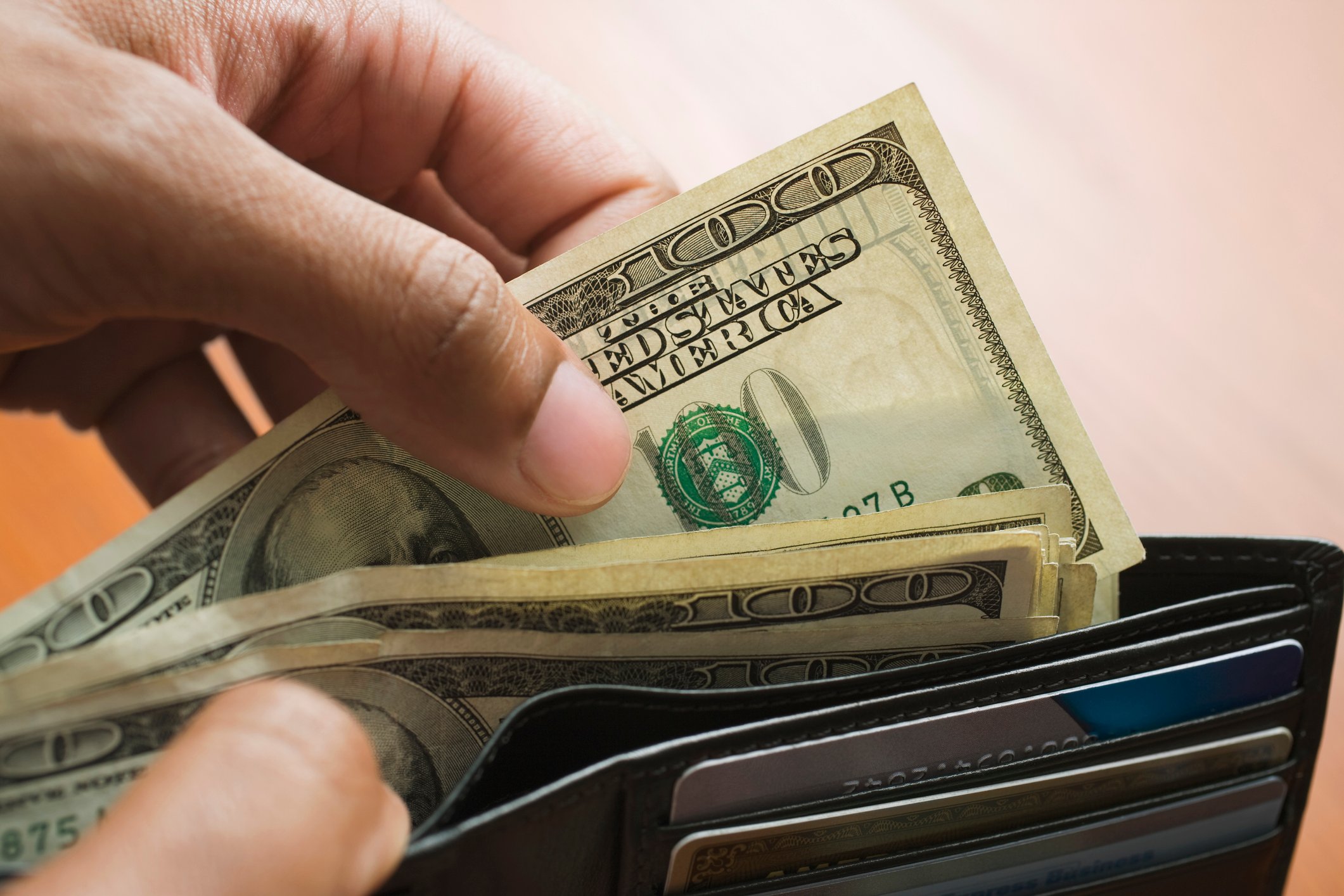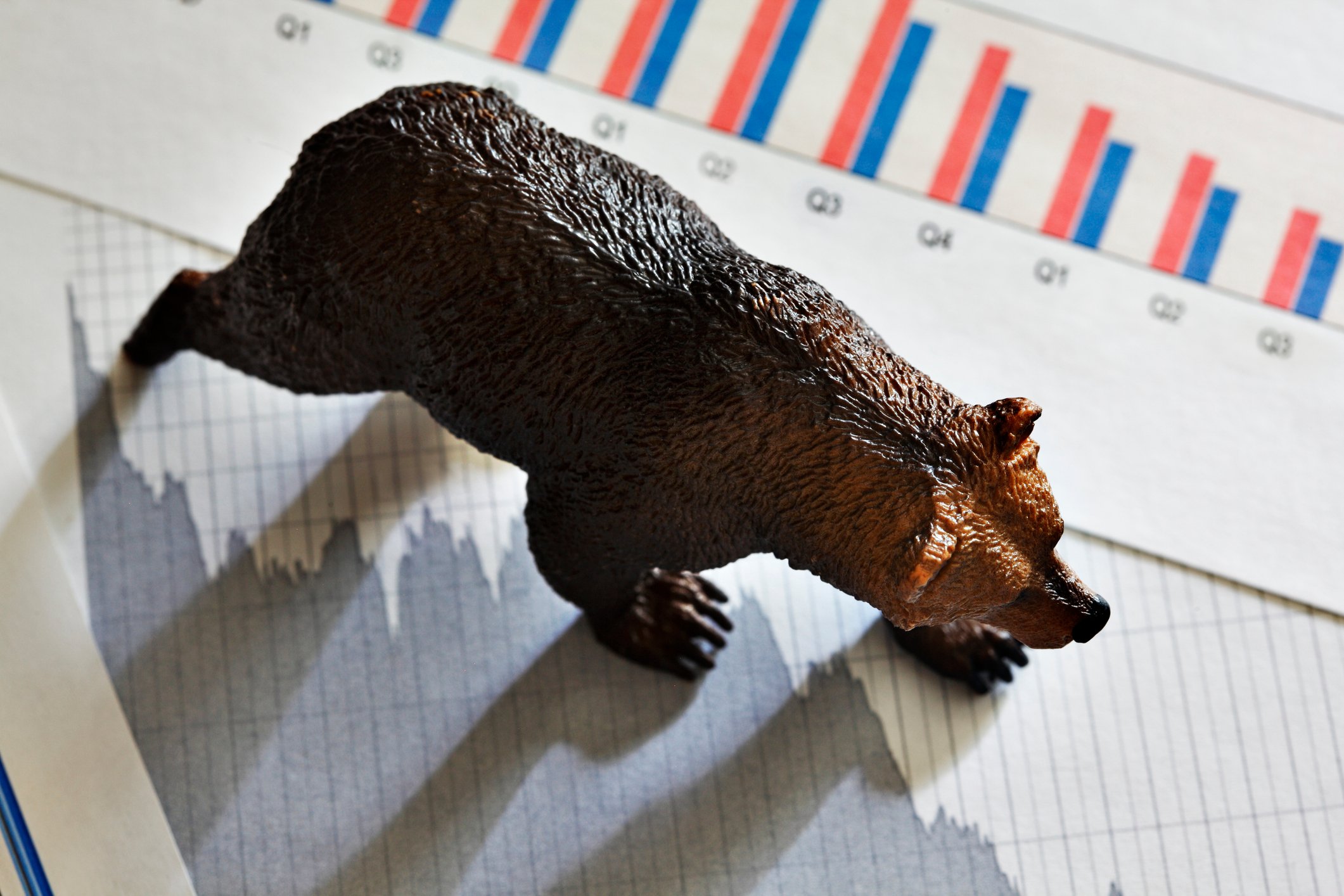Patience pays when it comes to investing on Wall Street. Although there have been 38 double-digit percentage declines in the widely followed S&P 500 since the beginning of 1950, each and every one of these drops was eventually put into the rearview mirror by a bull-market rally. In other words, it really does matter when you buy stakes in great businesses. What's important is your resolve to allow your investment thesis to play out over time.
Another great thing about investing in the stock market is you don't need to have Warren Buffett's pocketbook to build wealth. With most brokerages eliminating deposit requirements and trading commissions for companies listed on major U.S. exchanges, any amount of cash can be effectively put to work to grow your nest egg.
If you have, say, $300 at the ready that won't be needed to cover emergencies or pay bills, this is more than enough to buy some of the smartest stocks on Wall Street right now.

Image source: Getty Images.
Walgreens Boots Alliance
For value investors and income seekers, one of the smartest moves to make right now would be to scoop up shares of pharmacy-chain Walgreens Boots Alliance (WBA +0.00%).
Generally speaking, healthcare stocks are highly defensive and aren't often hurt by economic contractions or recessions. That's because health ailments don't care how well or poorly the economy is performing, which leads to steady demand for pharmaceuticals and medical devices, among other things.
But the coronavirus pandemic dropped the hammer on pharmacy chains like Walgreens, which rely on foot traffic to drive everything from pharmacy and clinic revenue to front-end grocery and nondiscretionary purchases. This (hopefully) one-time event is your opportunity to grab shares of Walgreens at a discount.
The pharmacy chain is already well into executing a multipoint turnaround plan designed to bolster organic growth and boost its operating margins. The company anticipates annual cost savings of at least $2 billion by fiscal 2022 but has spent aggressively on digitization efforts that'll lure consumers to order online. Although online retail sales make up a very small portion of Walgreens' total revenue, direct-to-consumer is an area where consistent double-digit growth can be recognized.
Equally exciting is Walgreens' partnership with VillageMD. In an industry first, the duo will work together to roll out up to 700 full-service clinics co-located in Walgreens' stores in over 30 U.S. markets. Whereas most in-store clinics handle vaccines and the common cold, the Walgreens-VillageMD tie-up will feature full-service care and on-site physicians. This approach should help draw repeat patients and could funnel those folks right to Walgreens' higher-margin pharmacy.
Shares of Walgreens Boots Alliance are currently going for a little over nine times Wall Street's consensus earnings per share for fiscal 2022, which is well below its average price-to-earnings ratio of 21 over the past five years. To boot, income investors will collect a market-topping 4% yield while patiently waiting for Wall Street to come to its senses.

Image source: Getty Images.
Green Thumb Industries
For the past couple of years, we've watched the legal cannabis industry thrive in North America. But over that time, only a small handful of marijuana stocks have truly stood out for all the right reasons. One such pot stock that has a very good chance of being an industry leader throughout the decade and would, therefore, be a smart buy right now is Green Thumb Industries (GTBIF 3.48%).
Before getting into the specifics of Green Thumb, I believe it's important to point out that the federal government doesn't need to legalize weed in the U.S. for marijuana stocks to succeed. As long as the Justice Department allows individual states to regulate their own industries, legal cannabis can be one of the fastest-growing industries of the decade. Currently, 36 states have legalized medical marijuana, 18 of which have also passed legislation to allow the consumption and/or retail sale of adult-use cannabis.
As for Green Thumb, it's a U.S. multistate operator that opened its 60th dispensary this week. In total, it's sitting on 110 retail licenses -- meaning it can open 50 more dispensaries -- and it has a presence in 13 states.
Many of the markets Green Thumb has chosen to operate in have billion-dollar annual sales potential and dole out retail and cultivation licenses on a limited basis. For instance, Illinois caps the number of retail licenses it'll issue in total and to individual businesses. Meanwhile, Virginia assigns dispensary licenses by jurisdiction.
The point is this: Green Thumb is focused on a number of markets where competition is being purposefully dialed back by regulators. This should assure the company a healthy percentage of sales in the key markets in which it's operating.
A final feather in the cap for Green Thumb is its product mix. Though dried cannabis flower might be the first thing you think of when it comes to marijuana sales, in the neighborhood of two-thirds of Green Thumb's revenue comes from derivatives such as edibles, oils, and vapes. Derivatives are less likely to be oversupplied and generate higher margins than dried cannabis flower. In short, they're Green Thumb's ticket to recurring profits.

Berkshire Hathaway CEO, Warren Buffett. Image source: The Motley Fool.
Berkshire Hathaway (B shares)
A third exceptionally smart stock to buy right now with $300 is conglomerate Berkshire Hathaway (BRK.A +1.19%)(BRK.B +0.78%). I'm specifically talking about the B-Class shares (BRK.B), given that each A-Class share goes for about $419,000.
Although Berkshire Hathaway isn't exactly a household name, its CEO Warren Buffett certainly is. Since taking the helm in 1965, Buffett has led his company to an annual average return of 20%. Including the 20.4% gain Berkshire's Class A shares have registered on a year-to-date basis through July, we're talking about an aggregate gain of almost 3,400,000% since Dec. 31, 1964, as well as more than $500 billion in value created for Berkshire Hathaway's shareholders. Past performance is no guarantee of future results, but it's hard to argue against long-term growth like this.
One reason Warren Buffett has been so successful over the years is his love of dividend stocks. My back-of-the-hand calculation has Berkshire Hathaway bringing in over $4.3 billion in dividend income in 2021, not counting its 8% preferred yield from its $10 billion Occidental Petroleum investment. Based on Berkshire Hathaway's initial cost basis, Buffett's company is generating a yield on cost of better than 4% (or nearly 5% if accounting for the Occidental preferred dividend).
Another reason Berkshire Hathaway has performed so well for so long is Buffett's affinity for packing his company's investment portfolio with cyclical companies. At the moment, information technology, financials, and consumer staples make up over 80% of Berkshire Hathaway's invested assets.
Even though recessions are inevitable, Buffett knows that the U.S. and global economy spend a disproportionately longer amount of time expanding than contracting. He's simply playing a numbers game that heavily favors long-term investors.
Given its long history of market outperformance, Berkshire Hathaway is a solid, if not boring, way to increase your wealth.








